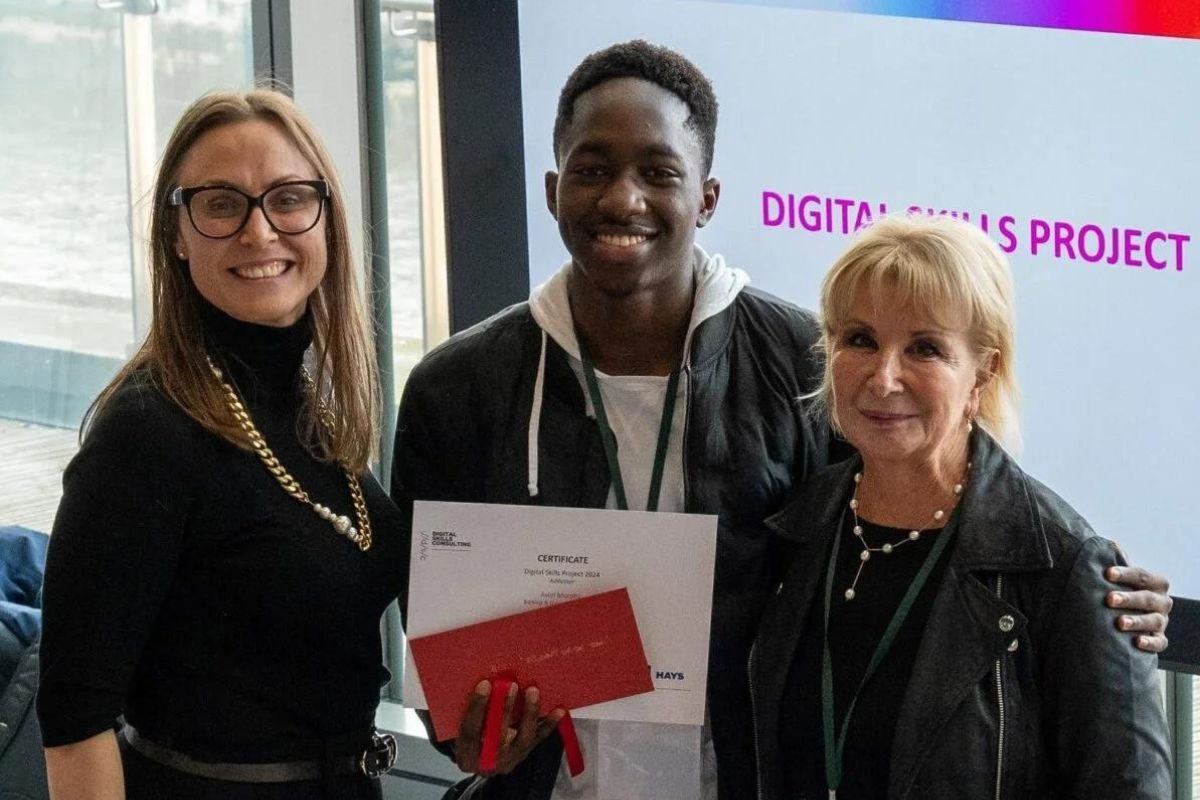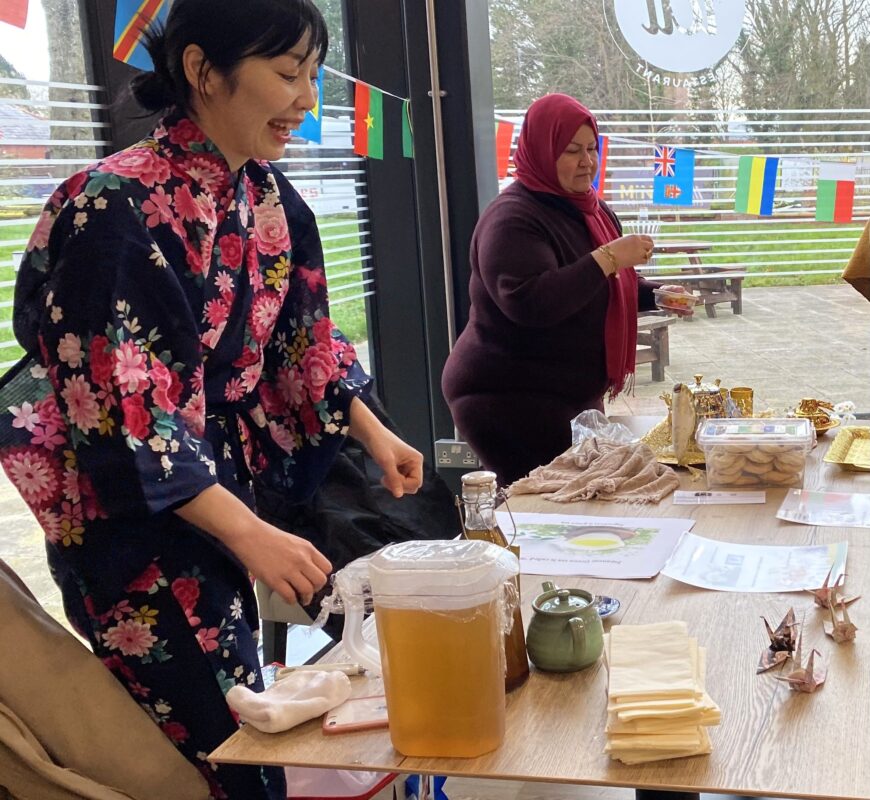Rapid Change or More of the Same?: How can we support individuals to prepare for the ‘Future of Work’?

There are few topics as hot right now as ‘The Future of Work’. The past two months has seen a flurry of reports and thought-pieces covering this subject from a variety of angles, including exploring the skills individuals need to adapt to the changing world of work (1), identifying ‘jobs of the future’ (2) and even contemplating how traditional stages of our careers, such as retirement, might change significantly over time (3). In short, there is a LOT of valuable content already available in this space! However, we don’t always hear as much about the individuals whose role it is to support people to manage their career journeys through what we are often told is a period of great upheaval and change. Intrigued to find out more about how my fellow careers professionals felt about ‘The Future of Work’ and how this impacted their work with clients, I surveyed career development professionals in my network anonymously to get a better understanding of how we are already supporting people on the ground to prepare for their working futures and what challenges professionals see as being most significant in this space.
The survey started with a simple, yet very open question – ‘When you think about The Future of Work, what comes to mind?’ – and the responses in the image above demonstrate just how nebulous the concept of ‘The Future of Work’ can be. Some respondents chose to focus on aspects of this topic that were grounded in current discourse, such as emerging or growing trends like Automation, Hybrid-Working, Artificial Intelligence, Green Jobs and the Metaverse, whereas others reflected on broad themes linked to the future (technology, environmental changes, jobs not yet invented, skills gaps) or keywords demonstrating the emotive responses we feel when we think about the future (e.g. fragmentation, evolving, The Unknown, growth, uncertainty) The wide-ranging nature of these responses, from individuals who spend a lot of time thinking about this topic, shows us that even though we can often make reasonable assessments of what the future of work might bring in terms of new job roles/industries, as this excellent piece from Helen Janota for Morrisby summarises (4), the way we feel about said change can be quite different from person to person.
Skills? Mindset? Support? The tools needed for navigating the Future of Work
One aspect of the discourse that always fascinates me surrounding ‘The Future of Work’ is the skills agenda, particularly the concept of ‘Future Skills’, another fairly nebulous term that tends to elicit a range of views from different stakeholders working in government, business, education and the careers sector. For this reason, I chose to ask careers professionals two separate questions regarding the tools that individuals might need to prepare for the ‘Future of Work’, one related to the most important factors (in their opinion) that people might need to consider to adapt to the changing world of work and one more connected to the concept of ‘21st Century Skills’, as collated from a range of sources, including the UK Government’s Unit for Future Skills (5), Skills Builder Partnership (6) and the Edge Foundation (7).
The responses were broad but a key theme emerged regarding the importance of what we would call ‘Career Management Skills’ (for example; Curiosity, Adaptability, Research Skills) rather than simply individuals needing to know about the latest developments in the labour market or which technical skills might be most in-demand in the coming years. While these areas were certainly considered important by a number of careers professionals (‘up-to-date labour market information’, ‘understanding of technology’ and ‘knowledge about new and emerging careers’ were all selected by multiple respondents) and ‘access to lifelong careers support’ was also identified as a key support mechanism, the overriding focus was on the benefit that ‘Career Management Skills’, ‘A flexible/non-linear mindset towards work/career’ and ‘Curiosity/Lifelong Learning’ could bring to individuals in terms of helping them navigate the changing world of work. This is reflected in a number of career theories that are popularly shared in relation to narratives around the ‘Future of Work’, such as Planned Happenstance (8), Chaos Theory of Careers (9) and Life Design (10), all of which encourage individuals to consider how they can embrace uncertainty and new opportunities, rather than attempt to prepare for a future they cannot control. Some of the following quotes from respondents illustrate why they feel mindset can be just as important as knowledge or skills when it comes to managing our careers:
- “Flexible mindset, curiosity as key career management skills. Curiosity will naturally build LMI/ understanding of growth sectors etc as it’s taking an interest in what’s happening in the world.”
- “Curiosity/lifelong learning – essential for keeping up to date with change and navigating career journey”
- “Mindset: skills can be learned and developed, but natural curiosity and the willingness to explore can create new opportunities.”
We can see a similar trend in the way careers professionals responded to the question regarding ‘21st Century Skills’, with the top 3 skills identified as being particularly important to helping individuals adapt to the changing world of work; Curiosity, Adaptability and Resilience. There was also general agreement from careers professionals as to the importance of some of the more regularly discussed ‘skills of the future’, with 70%+ of respondents agreeing that skills like Communication, Collaboration, Creativity and Digital Literacy were particularly transferable for the future world of work.
However, careers professionals’ views varied on the usefulness of the concept of ‘Future Skills’ / ‘21st Century Skills’ (as many have queried previously; surely skills like Communication, Creativity and Critical Thinking have always mattered!) – some respondents felt that there was a real benefit to talking about skills (in terms of moving away from an over-reliance on academic knowledge as currency), whereas others noted that while potentially useful from a development perspective, too much focus on ‘Future Skills’ could be detrimental insomuch as the expression has the potential to become overused and meaningless (e.g. “we’ve always needed these skills”) and could draw focus away from other important aspects of career management, such as lifelong learning, curiosity and a growth mindset. A number of respondents also queried whether our current model of education is fully equipped to help young people prepare for a changing world, something that has been echoed in recent calls to rethink educational assessment (11) and broaden post-16 academic qualifications to adopt more of a ‘baccalaureate’ approach.
Finally, I asked careers professionals what sort of sources they use to stay up to date on the changing world of work, the responses to which are detailed in the image above.
What is immediately noticeable from these responses is the dizzying array of sources available for individuals to access regarding Labour Market Information (LMI) that can potentially support careers professionals to help their clients better understand how the world of work might be changing. Needless to say, if filtering through this morass of information feels potentially daunting to careers professionals, it is likely to feel even more bewildering to the clients we are working with.
Respond to Uncertainty in a Proactive and Pragmatic Way
All of which brings us back nicely to a core theme that ran through the feedback from careers professionals who responded to the survey – in facing an uncertain world, individuals need to be able to respond to uncertainty in a proactive and pragmatic way and this is where empowering people with Career Management skills, the ability to navigate their own career journeys, can provide the tools that allow individuals to reflect on upskilling/reskilling needs, interrogate growth industries/’jobs of the future’ and negotiate any other aspects of a changing world that we cannot yet foresee.
But what of those of us helping these individuals to manage their career journeys? Is it about being future-facing practitioners on the forefront of labour market developments (Rapid Change) or leaning in to tried-and-tested methods of career guidance to empower people to manage their own careers? (More of the Same) As always, the truth is somewhere in-between – to effectively guide individuals and advocate on their behalf to other key stakeholders involved in how the world of work will change, including government, education providers and businesses, careers professionals need to be both confident in the CEIAG (Careers Education, Information, Advice and Guidance) expertise they are able to provide but also able to adopt the very mindset we encourage in our clients; to be curious, open to change and cognisant of how our existing skills and competencies can be adapted within different contexts.
I’ll finish with a quote from one of the respondents to the survey, who beautifully articulated how careers professionals might best respond to the challenges faced when considering ‘The Future of Work’:
“For me it’s more than just careers information and LMI. It’s also the news and wider approaches…I read philosophers, business leaders, thinkers as well as scientific, engineering and creative journals. Careers Advisers need to be akin to renaissance people – dabblers in the whole world, more curious than our clients and open to the wonderful, beautiful, vastness of possibilities!”

Chris Webb RCDP is a Higher Education Careers Professional, Freelance Careers Writer and Co-Host of the Career Development Institute’s #WeAreCareers Podcast. He is also a member of the Association of Graduate Careers Advisory Services (AGCAS) and the Career Writers’ Association. You can connect with Chris via his professional LinkedIn (linkedin.com/in/christopherwebbuk/) and Twitter (@WorldWebb) accounts.
References:
- Kingston University London & YouGov – Future Skills League Table 2022 – https://www.kingston.ac.uk/aboutkingstonuniversity/future-skills/
- World Economic Forum (Victoria Masterson) – From medicine drones to coral cleaners: 3 ‘jobs of the future’ that are already here (25th May 2022) – https://www.weforum.org/agenda/2022/05/robots-help-humans-future-jobs/
- BBC Worklife (Sophia Epstein) – Is this the end of retirement as we know it? (30th May 2022) – https://www.bbc.com/worklife/article/20220526-is-this-the-end-of-retirement-as-we-know-it
- Morrisby (Helen Janota) – What Will the Future of Work Look Like? – https://www.morrisby.com/blog/what-will-the-future-of-work-look-like
- UK Government – Unit for Future Skills – https://www.gov.uk/government/groups/unit-for-future-skills#research
- Skills Builder Partnership – Essential Skills Tracker 2022 – https://www.skillsbuilder.org/file/essential-skills-tracker-2022
- The Edge Foundation – Skills Shortage Bulletin #10 – https://www.edge.co.uk/research/projects/skills-shortages-uk-economy/skills-shortages-bulletin-10/
- LSE – How Planned Happenstance can help your career – https://blogs.lse.ac.uk/careers/2019/04/30/how-planned-happenstance-can-help-your-career/
- Careers NZ – Spotlight on the Chaos Theory of Careers – https://www.careers.govt.nz/articles/spotlight-on-the-chaos-theory-of-careers/
- Stanford Life Design Lab – Design Your Life – http://lifedesignlab.stanford.edu/
- Rethinking Assessment – Leading experts call for a digital learner profile to transform “narrow” education system – https://rethinkingassessment.com/rethinking-blogs/leading-experts-call-for-a-digital-learner-profile-to-transform-narrow-education-system/












Responses